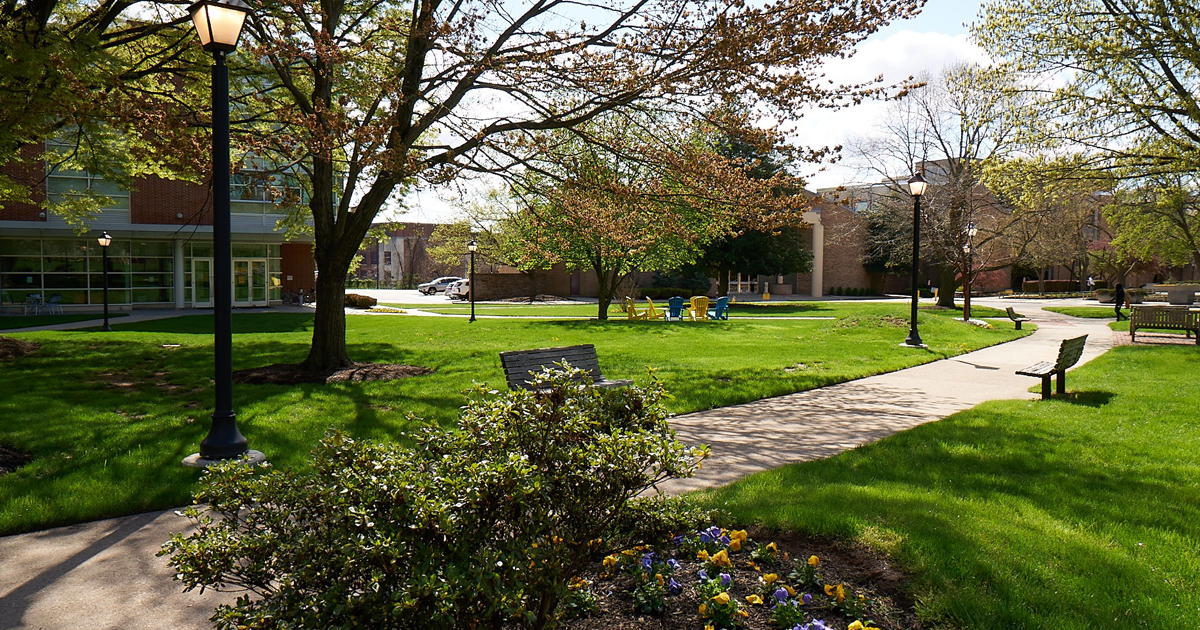La Salle University
La Salle selected to national institute on racial healing

The University was one of 77 U.S. colleges and universities chosen to participate.
Faculty, administrators, and staff from La Salle University participated in a virtual institute hosted by the Association of American Colleges and Universities (AAC&U) aimed at dismantling institutional racial hierarchies and breaking down beliefs in the hierarchy of human value.
La Salle was among 77 colleges and universities nationwide—and the only higher education institution from Philadelphia—selected to participate in AAC&U’s Truth, Racial Healing and Transformation (TRHT) institute, a four-day virtual event held June 22–25.
The aim of AAC&U’s TRHT institute, said AAC&U President Lynn Pasquerella, is to equip campus leaders nationally with new strategies and tools to “promote racial equity and healing on their campuses and in their communities,” and, eventually, bring TRHT centers to the campuses of its participating colleges and universities.
“The TRHT Institute offered us an opportunity to envision what our campus community should look, feel, and be like when attitudinal and structural inequities are eradicated,” said Br. Ernest J. Miller, FSC, D.Min., M.A. ’95, La Salle’s Vice President of Mission, Diversity, and Inclusion, who served as the lead for La Salle’s participating team. “Working together with other colleagues and students, we want to envision building a ‘community of practice’ around the work of justice, equity, diversity, and inclusion (JEDI). Becoming a community of practice implies becoming JEDI practitioners.”
AAC&U’s institute centered on the pillars of TRHT framework: narrative change, compassion, racial healing and relationship building, separation, law, and economy. It also offered opportunities to learn and collaborate as higher ed leaders work toward making change on their respective campuses.
The institute required teams from each participating university to develop a TRHT Campus Center action plan, detailing the necessary steps that will facilitate their institution’s move toward creating a Campus Center. This included a vision summary, communication and engagement plans, barriers to sustainability and accomplishment, and other key strategies. Each institution created its work under the guidance of a TRHT mentor and presented its draft action plan to other colleges and universities in their respective cohorts.
“The annual Institute reflects the intentional efforts and deep commitment of TRHT leaders from across the United States in addressing racism and eliminating racialized practices, systems, and structures,” said Tia McNair, AAC&U’s vice president for diversity, equity, and student success and executive director of AAC&U’s TRHT Campus Centers Institute. “Without their partnership and collaboration, the progress we have made and need to make in building just and equitable communities wouldn’t be possible.”
“The racial healing circle method we learned during the Institute has multiple applications for us right now at La Salle,” said associate professor of religion and theology Maureen O’Connell, Ph.D. “The premise is simple and yet profound: bring small groups of people together in a compassionate space, which is not the same thing as a brave space or a safe space, and then build up trust by sharing and hearing each others’ stories.”
In addition to Br. Ernest and O’Connell, the following faculty and staff comprised La Salle’s team:
- Rosemary A. Barbera, Ph.D., M.A. ’86, B.A. ’83, Associate Professor, Undergraduate Program Director, and Chair, Department of Social Work
- Deborah Byrne, Ph.D., Assistant Professor, Department of Nursing
- Ling Liang, Ph.D., Associate Professor, Department of Education
- Candace Robertson-James, DrPH, Assistant Professor, Program Director, and Chair, Department of Urban Public Health and Nutrition
- Michael Smith, Ph.D., Associate Professor, Department of Communication
- Christopher A. Vito, Senior Director, Strategic Communications
La Salle’s participation in AAC&U’s truth, racial healing, and transformation institute is the latest demonstration of the University’s commitment to justice, equity, diversity, and inclusion.
In May, La Salle’s Joint Commission on Diversity, Equity, and Inclusion completed its work and offered a briefing to the University’s Faculty Senate Executive Committee, Executive Cabinet, and Board of Trustees. Additionally, the Joint Commission delivered a detailed report with recommendations for consideration intended to enrich the campus environment at La Salle and facilitate institutional discernment and strategic planning in the University’s pursuit of inclusive excellence and equity.
“Participation in the TRHT Institute aligns wholly with the essence of the Joint Commission’s report.” said Br. Ernest. “Drawing on the depth of our Lasallian heritage, with the spirit of faith and zeal, we can move forward together as a University community.”